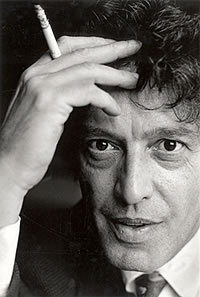|
Rosencrantz and Guildernstern are Dead
Playhouse Theatre, Oxford |
 |
Artistic works must withstand the brutal passing of time and trends to reach proper merit, and Tom Stoppard's 1966 play has been bruised enough now for us to place it in the category of truly 'great' plays in the English language. It is an irony Stoppard - and maybe Shakespeare himself - would approve of that a work addressing the terror of time's passing has become timeless. In the court of Hamlet 's Elsinore, Rosencrantz and Guildenstern are summoned by Claudius and Gertrude to uncover the root of Hamlet's melancholy. This is all our two heroes are told, and the play is predominantly the two of them engaging in blisteringly fast dialogue in order to distract them from their confused desperation and impending doom. From the title and from Hamlet we know before Stoppard's play starts that these two will die; it is a certainty. Like for us all, we know we will some day snuff it, and as Rosencrantz and Guildenstern spend their time in directionless lyrical meanderings, all of mankind must spend their earthly time undertaking something which, when compared with the unimaginable void that is death ('the ultimate negative' as Guildenstern says), that is tragically meaningless. You might think I left the Playhouse not exactly top of the world. Not so. Stoppard's wonderful interplay between all the characters is hilarious when done well, as it was here by the English Touring Theatre. The group of players who perform The Murder Of Gonzago in Hamlet often joins Rosencrantz and Guildenstern on stage. Stoppard has them as pornographers, and in their leader creates a character on which every production of this play hinges. James Faulkner plays him perfectly, with the kind of exuberance often associated with Brian Blessed, yet also with a reflective tone and a very dark side. Of the two heroes, Nicholas Rowe as Rosencrantz shades it. In amongst all the Nietzsche and Plato and Beckett, Rowe throws something of Alan Partridge into his delivery. His gangly frame is also a major comedy force. A few words about the set. The action took place in what looked like an empty classroom; chairs stacked round the sides and bare wooden floors. The ticking of a clock on the back wall was a shrewd touch, though a door marked 'exit', used to represent death through which Rosencrantz and Guildenstern go, was slightly unsubtle. All in all, a triumphant interpretation of a classic modern work. Barnaby Smith |
|